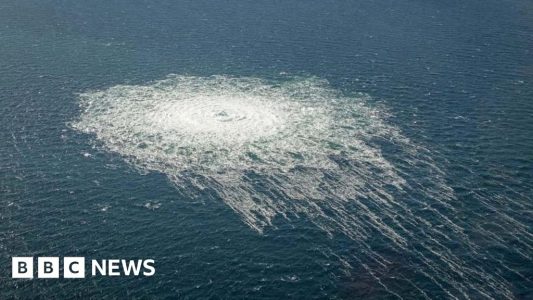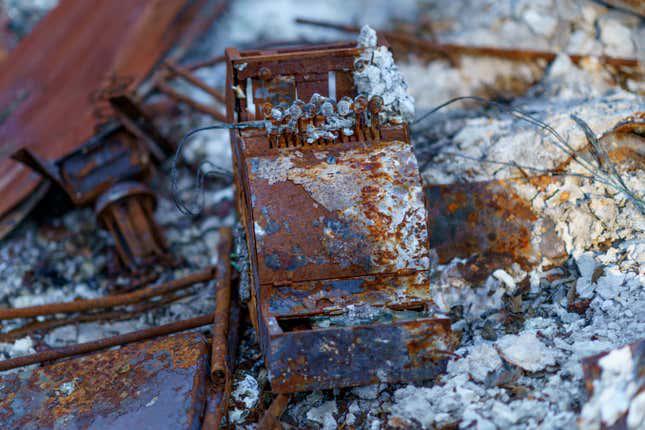Nord Stream pipeline attack: Ukraine denies involvement - Dispatch Weekly
March 8, 2023 - Reading time: 4 minutes

The attack on the Nord Stream pipeline in September, which were constructed to transport Russian natural gas to Germany, has been categorically rejected by Ukraine.
The denial comes in response to a New York Times report that quoted unnamed American intelligence sources as saying a pro-Ukrainian organisation was to blame.
Ukraine “was absolutely not involved,” according to Mykhailo Podolyak, a member of the Ukrainian president’s advisory council.
As a “coordinated attempt to rig the news,” Russia scorned the report.
Dmitry Peskov, a spokesman for the Kremlin, questioned how the US could draw conclusions without conducting an investigation. He told the state news agency Ria-Novosti: “Clearly, the attack’s perpetrators aimed to divert attention.
German media report authorities believe they have identified the boat used to plant the bombs.
Before the explosions, Russian gas deliveries had been stopped. In August of last year, Russia shut down the Nord Stream 1 pipeline, claiming it required maintenance. The Nord Stream 2 project had never been operational.
Although the specific cause of the explosions that hit the natural gas pipelines on 26 September is uncertain, it is commonly accepted that they were the target of an assault.
Moscow has accused the West of being responsible for the blasts and requested that the UN Security Council conduct its own investigation.
Although the EU has repeatedly claimed that Russia uses its gas pipelines as a weapon against the West, Nato and Western leaders have refrained from publicly accusing Moscow of assaulting its own pipelines.
The attack on the Nord Stream pipelines may have been carried out by a pro-Ukrainian group, according to new intelligence that US authorities have evaluated, said a report in the New York Times on Tuesday.
There is no proof that Ukrainian President Volodymyr Zelensky or his top lieutenants were involved in the operation, according to the article, which cited unidentified US sources.
Authorities who have analysed the intelligence said they thought the saboteurs were probably Ukrainian or Russian citizens, or a combination of the two, it said.
In response to the New York Times article, Mr. Podolyak emphasised that Kyiv was unaware of what had taken place.
German tabloid Die Zeit stated that German officials had made progress in their inquiry into the reason behind the attacks on Tuesday.
The boat used to lay the explosives was a yacht chartered from a company based in Poland, according to collaborative research by the daily and other German media outlets. The yacht reportedly belonged to two Ukrainians. Unknown countries may have been involved in the incident.
The newspaper claims that German authorities have not yet discovered any proof of who ordered the damage. It also emphasises that there is still a chance that Ukraine might be the target of a false flag operation.
The September incident is believed to have destroyed at least 50m (164ft) of the underwater Nord Stream 1 pipeline carrying Russian gas to Germany.
The pipe and its more recent twin, Nord Stream 2, were allegedly the targets of four “strong explosions,” according to Danish police.
Authorities from Germany, Denmark, and Sweden have all looked into the incident.
According to Mr. Peskov, the nations that own shares in Nord Stream should demand an immediate, open examination.
He stated, “We are still not permitted in the investigation. “We just just received notes about this from the Swedes and Danes. This is more than just odd. It has the odour of a horrifying crime.”
Russia has provided Western Europe with enormous supplies of natural gas for many years. Yet, the majority of EU nations significantly cut their dependency on Russian energy when the conflict in Ukraine broke out in February of last year.

DW Staff
David Lintott is the Editor-in-Chief, leading our team of talented freelance journalists. He specializes in covering culture, sport, and society. Originally from the decaying seaside town of Eastbourne, he attributes his insightful world-weariness to his roots in this unique setting.




